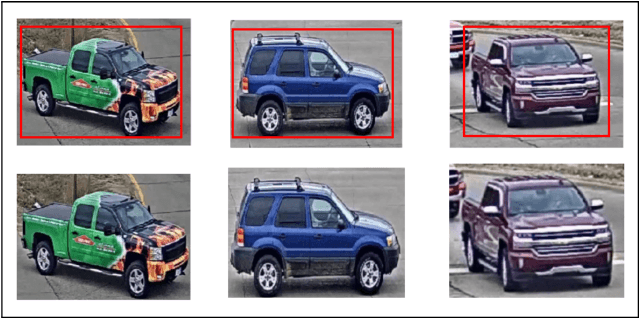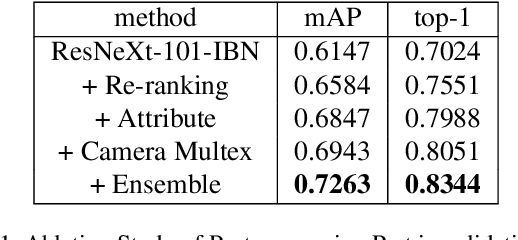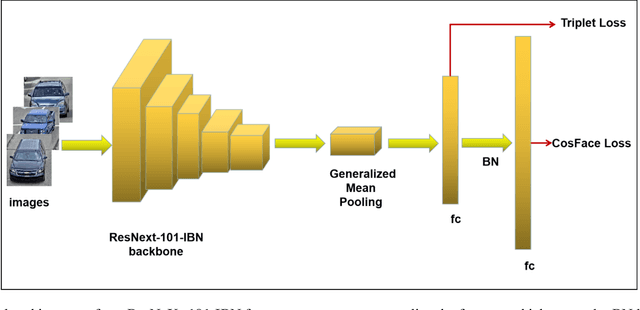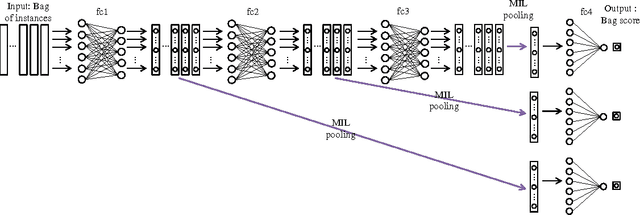Yongluan Yan
Vehicle Re-identification Method Based on Vehicle Attribute and Mutual Exclusion Between Cameras
Apr 30, 2021



Abstract:Vehicle Re-identification aims to identify a specific vehicle across time and camera view. With the rapid growth of intelligent transportation systems and smart cities, vehicle Re-identification technology gets more and more attention. However, due to the difference of shooting angle and the high similarity of vehicles belonging to the same brand, vehicle re-identification becomes a great challenge for existing method. In this paper, we propose a vehicle attribute-guided method to re-rank vehicle Re-ID result. The attributes used include vehicle orientation and vehicle brand . We also focus on the camera information and introduce camera mutual exclusion theory to further fine-tune the search results. In terms of feature extraction, we combine the data augmentations of multi-resolutions with the large model ensemble to get a more robust vehicle features. Our method achieves mAP of 63.73% and rank-1 accuracy 76.61% in the CVPR 2021 AI City Challenge.
Revisiting Multiple Instance Neural Networks
Oct 08, 2016



Abstract:Recently neural networks and multiple instance learning are both attractive topics in Artificial Intelligence related research fields. Deep neural networks have achieved great success in supervised learning problems, and multiple instance learning as a typical weakly-supervised learning method is effective for many applications in computer vision, biometrics, nature language processing, etc. In this paper, we revisit the problem of solving multiple instance learning problems using neural networks. Neural networks are appealing for solving multiple instance learning problem. The multiple instance neural networks perform multiple instance learning in an end-to-end way, which take a bag with various number of instances as input and directly output bag label. All of the parameters in a multiple instance network are able to be optimized via back-propagation. We propose a new multiple instance neural network to learn bag representations, which is different from the existing multiple instance neural networks that focus on estimating instance label. In addition, recent tricks developed in deep learning have been studied in multiple instance networks, we find deep supervision is effective for boosting bag classification accuracy. In the experiments, the proposed multiple instance networks achieve state-of-the-art or competitive performance on several MIL benchmarks. Moreover, it is extremely fast for both testing and training, e.g., it takes only 0.0003 second to predict a bag and a few seconds to train on a MIL datasets on a moderate CPU.
 Add to Chrome
Add to Chrome Add to Firefox
Add to Firefox Add to Edge
Add to Edge